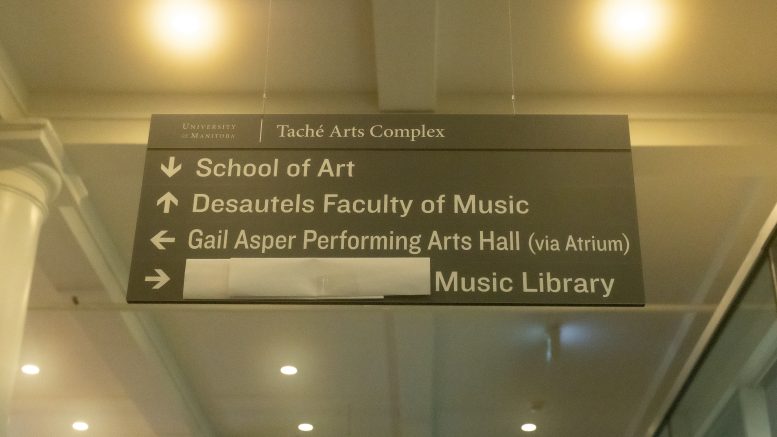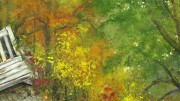The legacy of Ferdinand Eckhardt, a former director of the Winnipeg Art Gallery, has come
under scrutiny after an article published in the Walrus on Nov. 9 alleged he had Nazi
sympathies.
The University of Manitoba’s music library was named after Eckhardt’s wife, Sophie-Carmen
Eckhardt-Gramatté, a Russian composer and musician. Since the Walrus article was published,
the sign displaying the name of the library has been covered.
The article, “Was the Winnipeg Art Gallery Led by a Nazi?”, written by Conrad Sweatman,
discusses Eckhardt’s past associations with Nazism, such as signing an oath of allegiance to
Adolf Hitler, his writings in Nazi-aligned journals in the early 1930s and his work with IG Farben, the company that constructed the Auschwitz concentration camp and produced Zyklon B, the compound used in gas chambers.
While Eckhardt was the director of the Winnipeg Art Gallery in 1973, Karl Stumpp, a German
ethnographer who assisted Einsatzgruppen killing squads in selecting their victims, held a
presentation in the gallery about persecution of ethnic Germans by the Soviet Union.
The Eckhardt-Gramatté music library has been part of the university since 1965 and was
relocated to its current location at Taché in 2015. Since then, the Eckhardt-Gramatté Foundation has given the U of M $500,000 toward the growth of the library and the Desautels faculty of music collection.
Eckhardt-Gramatté’s name is also memorialized in the University of Winnipeg’s Eckhardt-
Gramatté library, University of Winnipeg’s and University of Calgary’s Eckhardt-Gramatté Hall,
Brandon University’s Eckhardt-Gramatté conservatory of music, and the Eckhardt-Gramatté
national music competition in strings.
Josiah Wurch, a third year music student, was “shocked” after reading the Walrus article. He
said it “raises the question of whether or not these names should be [removed].”
“I think it definitely is good to reassess the names that we put on places like libraries or
streets,” Wurch said.
“Especially in the light of current world events right now, I think it is very important for us to be mindful about who we’re naming things after.”
Wurch said that if Eckhardt was found to be a member of the Nazi party, removing the name
would be “a step in the right direction.”
The U of M is currently conducting an investigation into Eckhardt’s past, according to a
statement from U of M spokesperson Eleanor Coopsammy.
“A few weeks ago, a Walrus article raised the possibility of Ferdinand Eckhardt having ties to
the Nazis before the Second World War and his immigration to Canada,” Coopsammy said.
“These allegations are alarming and disturbing and, if accurate, would put the naming of the
music library in violation of UM’s naming policy. UM is conducting a full review into the naming of the space to determine next steps. In the meantime, any painting or plaque that bears the name will be covered until after the review.”





